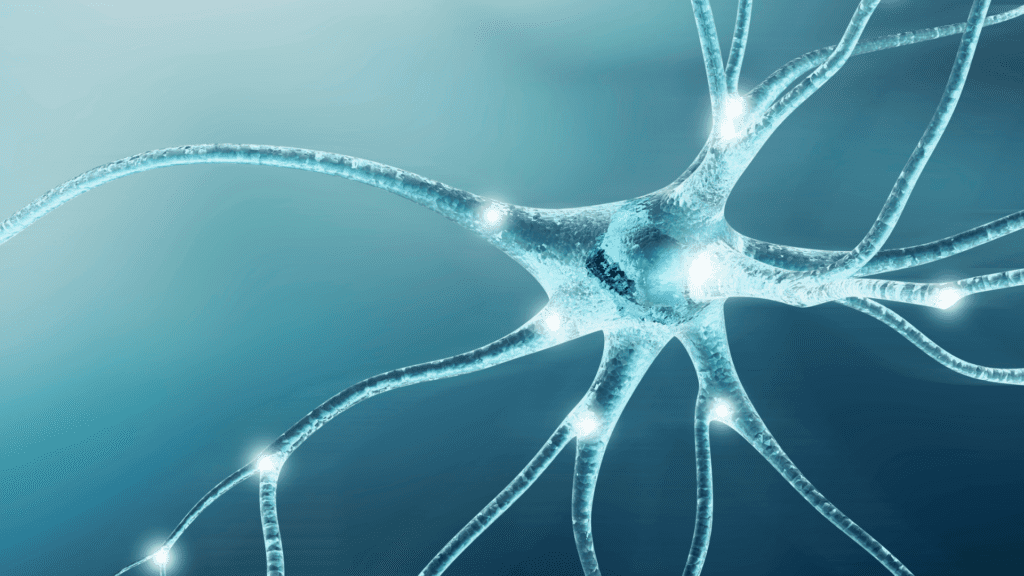Decoding Mental Overload: Your Brain’s SOS and How to Answer It
Ever feel like your brain has hit an invisible wall? You’re not imagining it – mental exhaustion is real, and it’s affecting millions. But here’s the kicker: it’s not just about being tired.
Picture this: You’re staring at your computer screen, the words blurring together, your mind feeling like it’s wading through molasses.Sound familiar? You’re not alone. In our relentless world, from the moment we wake up to check our phones, through a day of juggling tasks, unexpected interruptions, and the never-ending ping of notifications, our brains are under siege.
But what’s really happening inside your head when you hit that wall of mental fatigue? Imagine your brain as a bustling city, with neurotransmitters as the traffic controllers. As the day wears on, these controllers start to falter, leading to cognitive gridlock. It’s a complex neurological state affecting various brain regions and functions.
In this guide, you’ll discover:
- The hidden neurological processes behind mental fatigue
- Why your decision-making falters as the day progresses
- Cutting-edge strategies to recharge your cognitive batteries
- How to transform your daily routine for optimal mental energy
We’ll explore why that report you breezed through in the morning becomes an insurmountable challenge by late afternoon. You’ll learn why deciding what to have for dinner feels as daunting as making crucial work choices when mental fatigue sets in.
But here’s the good news: understanding the neuroscience behind mental exhaustion is your first step to reclaiming cognitive vitality. We’ll uncover research-backed strategies that go beyond the usual “just take a break” advice.
Whether you’re a student pulling all-nighters, a professional juggling multiple projects, or anyone feeling overwhelmed by modern life’s demands, this guide offers a lifeline to a clearer, more energized mind.

Recognizing the Symptoms of Mental Exhaustion
Identifying this issue early is crucial for preventing its escalation. The symptoms of mental fatigue can manifest in various ways, affecting both our cognitive functions and overall well-being. While everyone experiences it differently, some common signs include:
- Persistent brain fog or difficulty thinking clearly
- Increased irritability or emotional reactivity
- Physical symptoms like headaches or muscle tension
- Sleep disturbances, either insomnia or excessive sleepiness
- Loss of motivation or enjoyment in previously pleasurable activities
The Neurobiology of Mental Fatigue
Feeling mentally exhausted is more than just feeling tired. It’s a complex neurological state that affects various brain regions and functions. Understanding the underlying mechanisms can help us develop more effective ways to combat this pervasive issue.

Cognitive Symptoms
Difficulty Concentrating and Focusing
When mentally taxed, individuals often struggle to maintain attention. This is linked to decreased activity in the prefrontal cortex, particularly the dorsolateral prefrontal cortex (dlPFC). The dlPFC plays a crucial role in executive functions, including attention and working memory. As mental fatigue sets in, the neural signals in this region become less efficient, leading to difficulties in sustained focus..
Impaired Decision-Making
Mental fatigue can significantly impact our ability to make decisions. Research has shown that this is associated with reduced activity in the anterior cingulate cortex (ACC). The ACC is involved in cost-benefit evaluations, and its decreased activation during mental fatigue may explain why we tend to favor low-effort, immediate-reward options when tired.
Memory Issues and Brain Fog
The experience of “brain fog” or difficulty recalling information is a common symptom of mental fatigue. This can be attributed to changes in the hippocampus, a region crucial for memory formation and retrieval. Mental fatigue has been associated with decreased functional connectivity between the hippocampus and other brain regions, potentially explaining these memory difficulties.
Emotional Symptoms
Irritability and Mood Changes
Mental fatigue often leads to increased irritability and mood swings. This is linked to alterations in the limbic system, particularly the amygdala. When fatigued, the prefrontal cortex’s ability to regulate the amygdala’s emotional responses is diminished, leading to more reactive and volatile emotional states.
Decreased Motivation
A notable symptom of mental fatigue is a lack of motivation. Neuroscientifically, this is associated with reduced dopamine signaling in the brain’s reward system, particularly the nucleus accumbens. This decrease in dopamine can make previously rewarding activities seem less appealing.

Physical Symptoms
Headaches and Physical Discomfort
Mental fatigue can manifest physically as headaches or general discomfort. This may be related to increased tension in the muscles of the head and neck, as well as changes in cerebral blood flow. The insula, a region involved in interoception (the perception of internal bodily sensations), shows altered activity during mental fatigue, potentially explaining these physical symptoms.
Sleep Disturbances
Paradoxically, mental fatigue can lead to sleep issues. This is linked to disruptions in the circadian rhythm regulated by the suprachiasmatic nucleus. Mental fatigue can alter the normal functioning of this “body clock,” leading to difficulties in falling asleep or maintaining restful sleep.
Neurochemical Changes
Recent research has shed light on the neurochemical basis of mental fatigue symptoms. A groundbreaking study found that prolonged cognitive effort leads to an accumulation of glutamate in the prefrontal cortex. This buildup of glutamate, an excitatory neurotransmitter, may explain many symptoms of mental fatigue, including decreased cognitive performance and the feeling of mental overload.
Understanding these neurobiological mechanisms underlying the symptoms of mental fatigue not only provides insight into why we feel the way we do when mentally exhausted but also opens up potential avenues for developing more targeted interventions to combat mental fatigue in the future.
The Brain’s CEO: The Prefrontal Cortex
The prefrontal cortex plays a crucial role in executive functions such as decision-making, attention, and emotional regulation. When we experience mental or emotional overload, this region shows decreased activity and connectivity with other brain areas.
This reduction in prefrontal cortex function can lead to:
- Difficulty concentrating
- Impaired decision-making
- Emotional instability
- Reduced impulse control
Neurotransmitter Imbalances
Mental fatigue also affects the delicate balance of neurotransmitters in our brains. Prolonged stress and cognitive overload can lead to:
- Decreased dopamine levels, affecting motivation and reward-seeking behavior
- Imbalanced serotonin, potentially contributing to mood disturbances
- Elevated cortisol, the stress hormone, which can impair cognitive function over time
Recognizing the Signs and Symptoms of Burnout
Identifying mental exhaustion early is crucial for preventing its escalation. While everyone experiences it differently, some common signs include:
- Persistent brain fog or difficulty thinking clearly
- Increased irritability or emotional reactivity
- Physical symptoms like headaches or muscle tension
- Sleep disturbances, either insomnia or excessive sleepiness
- Loss of motivation or enjoyment in previously pleasurable activities

The Cognitive Load Theory and Mental Exhaustion
Cognitive Load Theory, developed by educational psychologist John Sweller, provides valuable insights into why we experience mental exhaustion. This theory suggests that our working memory has a limited capacity, and when it’s overwhelmed, cognitive performance suffers.
Types of Cognitive Load
- Intrinsic Load: The inherent difficulty of a task
- Extraneous Load: Unnecessary information or distractions
- Germane Load: The mental effort required to process and integrate new information
When these loads exceed our cognitive capacity, mental exhaustion can set in. By understanding and managing these different types of cognitive load, we can better protect ourselves from mental fatigue.
Neuroplasticity: Your Brain’s Secret Weapon
The concept of neuroplasticity – the brain’s ability to form new connections and pathways throughout life – offers hope for those struggling with mental exhaustion. By engaging in activities that promote neuroplasticity, we can enhance our cognitive resilience and recover more effectively from mental fatigue.
Neuroplasticity-Boosting Activities
- Learning new skills or languages
- Engaging in regular physical exercise
- Practicing mindfulness meditation
- Challenging yourself with cognitive puzzles or games
These activities not only provide a mental break but also strengthen the neural networks that support cognitive function, making your brain more resilient to mental exhaustion over time.
How to Overcome Mental Overwhelm: Evidence-Based Strategies
Armed with an understanding of the neurological basis of mental exhaustion, we can now explore evidence-based strategies to rejuvenate our minds and boost cognitive performance.
1. Prioritize High-Quality Sleep
Sleep is the brain’s primary recovery mechanism. During sleep, the glymphatic system – the brain’s waste clearance system – becomes more active, removing metabolic byproducts that accumulate during wakefulness.
To optimize your sleep for mental recovery:
- Stick to a consistent sleep schedule
- Create a relaxing bedtime routine
- Limit exposure to blue light before bed
- Ensure your sleeping environment is cool, dark, and quiet
2. Practice Strategic Breaks
Taking regular breaks throughout the day can prevent the accumulation of mental fatigue. The Pomodoro Technique, which involves 25-minute work sessions followed by 5-minute breaks, is one effective approach.
During these breaks, engage in activities that activate different brain regions:
- Short bursts of physical activity
- Brief mindfulness exercises
- Nature exposure, even if just looking at plants or nature scenes
3. Harness the Power of Nature
Exposure to natural environments has been shown to have restorative effects on cognitive function. This phenomenon, known as Attention Restoration Theory, suggests that nature provides a form of effortless attention that allows our directed attention resources to replenish.
Incorporate nature into your routine by:
- Taking walks in green spaces
- Adding plants to your workspace
- Using nature sounds or images during breaks
4. Optimize Your Nutrition for Brain Health
What we eat significantly impacts our cognitive function and resilience to mental exhaustion.
Focus on foods that support brain health:
- Omega-3 fatty acids (found in fatty fish, walnuts, and flaxseeds)
- Antioxidant-rich fruits and vegetables
- Complex carbohydrates for steady glucose levels
- Adequate hydration to maintain optimal brain function
5. Cultivate Mindfulness and Meditation Practices
Regular mindfulness practice has been shown to increase gray matter density in brain regions associated with learning, memory, and emotional regulation. This can enhance our ability to manage stress and recover from mental exhaustion. Start with short, guided meditations and gradually increase the duration as you become more comfortable with the practice.

Mental and Emotional Exhaustion: A Dual Challenge
It’s important to note that mental exhaustion often goes hand-in-hand with emotional exhaustion. This combination can be particularly challenging, as it affects both our cognitive abilities and our emotional resilience.
Symptoms of emotional exhaustion may include:
- Feeling overwhelmed or helpless
- Increased cynicism or negativity
- Loss of motivation or sense of purpose
- Difficulty in managing emotions
- Physical symptoms like fatigue and sleep disturbances
Addressing both requires a holistic approach that includes cognitive strategies, emotional support, and lifestyle changes.
When Exhaustion Reaches a Critical Point
In severe cases, prolonged mental exhaustion can escalate to a point where an individual may experience what’s commonly referred to as a nervous breakdown. While not a clinical term, this describes a state where someone is unable to function normally due to overwhelming stress and emotional distress. It’s crucial to recognize the signs early and seek professional help if you or someone you know is approaching this critical point of exhaustion.
The Future of Mental Exhaustion Research
As neuroscience continues to advance, we’re gaining new insights into mental exhaustion and potential interventions.
Emerging areas of research include:
- Neurofeedback techniques to train brain wave patterns associated with cognitive resilience
- Targeted nutritional interventions to support brain health and function
- Development of wearable devices that can detect early signs of mental fatigue and provide real-time interventions
These advancements hold promise for more personalized and effective strategies to combat mental exhaustion in the future.
Frequently Asked Questions
What are signs of mental exhaustion?
Signs of mental exhaustion include persistent brain fog, difficulty concentrating, increased irritability, sleep disturbances, and loss of motivation or enjoyment in activities.
How do you fix mental exhaustion?
To address mental exhaustion, prioritize high-quality sleep, take regular breaks, engage in physical exercise, practice mindfulness, and optimize your nutrition for brain health.
What does it mean to be mentally drained out?
Being mentally drained out refers to a state of cognitive fatigue where your brain’s resources are depleted, leading to decreased mental performance and emotional resilience.
How long does it take to recover from mental exhaustion?
Recovery time varies depending on the severity and individual circumstances. Mild cases may improve within a few days of rest and self-care, while more severe cases can take weeks or months with proper intervention and lifestyle changes.

Empowering Your Mind: A Path Forward
Mental exhaustion is a complex challenge, but armed with neuroscientific insights and practical strategies, we can take meaningful steps to protect and rejuvenate our cognitive resources. By understanding the neurological underpinnings of mental fatigue, we can approach recovery with precision and purpose.
Remember, the journey to overcoming mental exhaustion is personal and may require some experimentation to find what works best for you. Be gentle with yourself and celebrate small victories as you work towards building a more resilient mind.
By implementing the strategies discussed in this guide and staying informed about the latest neuroscience research, you can take control of your mental energy and thrive in our cognitively demanding world. Your brain has an incredible capacity for adaptation and renewal – nurture it wisely, and it will serve you well.













